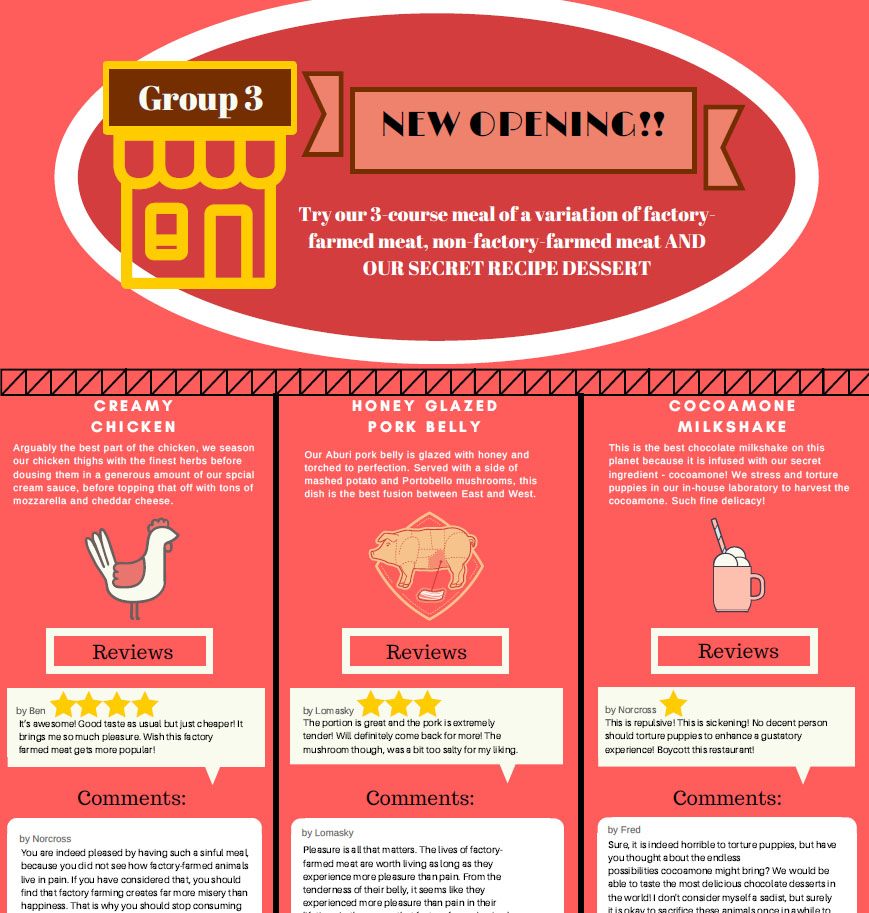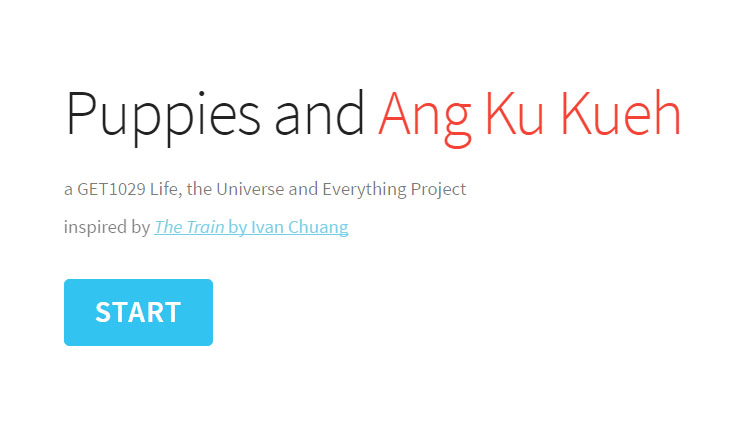This is a video on a student attempting to cheat on his examination – and getting caught by the professor. However, he argues that he should not be punished because free will doesn’t exist — and if he doesn’t have free will, he shouldn’t be held morally responsible for his actions (in a causally deterministic or a causally indeterministic world). The video explores the idea of free will and moral responsibility, with 2 different endings audience can select based on their stance. (Yes/No links included in the video description – in case video options don’t work. Best viewed on desktop)
W15G01




